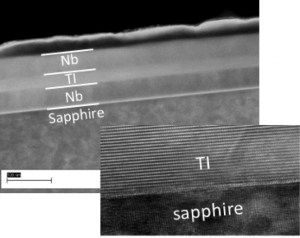Summary
Proximity engineered hybrid materials have shown promise for topological quantum information processing. This form of quantum computing provides a stable, error-tolerant approach for building scalable quantum information processors. Topological quantum computing relies on braiding non-Abelian particles, such as Majorana fermions, which do not exist in nature. One can however use materials engineering to create these particles in topological insulators that are proximity coupled to superconductors and magnetic insulators. In this project we synthesize high quality topological insulators and superconductors, couple them together to form a clean interface (“strong proximity”), and use tunneling spectroscopy to identify the presence of Majorana fermions. Once we are able to move the Majorana particles in a controlled fashion, we then braid an array of them and extract topological quantum information. This will provide the first demonstration of non-Abelian statistics on topological insulators and the first realization of topological quantum computing.

Figure 1. Example of a superconductor/topological insulator (TI) heterostructure on sapphire. Well-defined interfaces are clearly visible.
Related Content

Inverse Photoemission Spectroscopy of Quantum Materials
Summary Quantum materials that exhibit strong electron correlations lead to phenomena, such as superconductivity and topologically protected states, that are important for quantum computation, sensing, and other applications. For example, we may utilize symmetry protected topological states to make qubits that are robust against decoherence, while advances in high temperature superconductors may significantly reduce […]
September 20, 2018

Towards large area, resonant quantum tunneling diodes by continuous Langmuir transfer of exfoliated 2D materials
Summary Atomically thin 2D materials constitute promising building blocks for quantum devices due to their exotic, layer-dependent electronic properties. The ability to stack these materials in alternating layers enables heterostructures to be built in almost limitless combinations and over small enough length scales to observe quantum phenomena. So far though, practical implementation of devices based […]
April 1, 2020

Entangled States of Beams and their Applications
Summary With David Cory and collaborators at the National Institute of Standards and Technology (NIST) we explore how to engineer beams of neutron or photons that carry entanglement. The degrees of freedom that can be entangled include spin (polarization), momentum, displacement, and angular momentum. These have potential applications ranging from studies of helical internal magnetic fields […]
September 7, 2016

Chiral Quantum Antenna Based on Multilayer Metasurface
Summary Individual atoms can act as stationary qubits and thus serve as nodes in quantum computing networks or as memories for quantum repeaters. However, to successfully use qubits based on single atoms suspended in free space, photons emitted by a single atom need to be efficiently collected. Conventionally, this can be done with high […]
September 20, 2018

